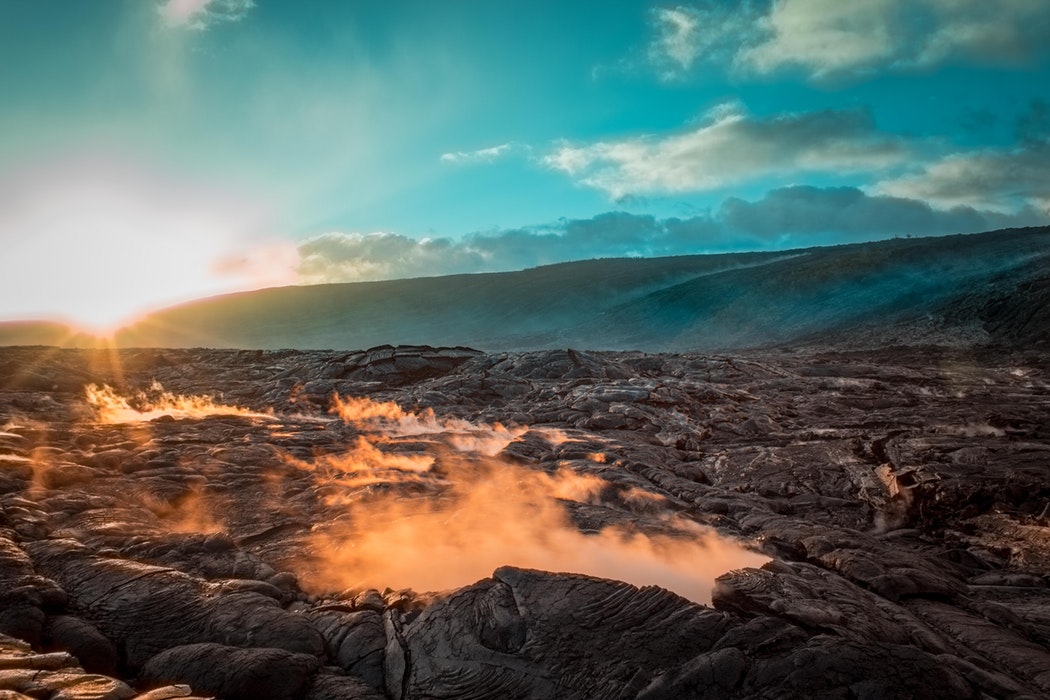The most spectacular geysers around the world

Geysers are fascinating natural phenomena often displaying sudden and explosive power. Although most of them are predictable, the hot steam still surprises the explorers and the visitors that come to witness them. Their power amazes everyone who experiences it, especially kids. There are countless spectacular geysers around the world, but some of them are more beautiful than others. The unique thing about them is that they can produce a rainbow effect on a clear-sky day.
If you are a geology nerd, then you would probably love to visit some of these magical spots. Let’s get started!
Fly Geyser, Nevada, USA

The Fly Geyser is a gorgeous, colorful geyser in Nevada’s Black Rock Desert. The geyser is located on private property owned by the Burning Man Project. They purchased the Fly Ranch, including the geyser in June 2016 for 6.5 million dollars. Fly Geyser was created in 1964 during well drilling for geothermal research. The well was probably left unplugged, so dissolved minerals started accumulating on the surface, creating mounds and terraces. The bright, contrasting colors make the geyser an attractive geological location.
Castle Geyser, Wyoming, USA

Castle Geyser is a cone geyser in Yellowstone National Park. It has a 10-12 hours eruption cycle, and the vertical hot water column erupts for 20 minutes non-stop. After the hot water eruption, a second phase of hot steam starts and lasts 30-40 minutes. There was a belief that the Castle Geyser is older than 15,000 years, but recent tests show that the first eruption was 1,000 years ago. No matter how old the geyser is, it’s still an incredible thing to see and to get some cool shots of.
Valley of geysers, Russia

The world’s second-biggest geyser field, the Valley of Geysers is located on the Kamchatka Peninsula in Russia and has more than 30 named geysers. The most famous among them is Velikan (“giant”) Geyser that erupts every 6 to 8 hours, blasting super hot water up to 80 ft. in the air. Every eruption lasts only a minute, so better plan your visit after some prior research. In 2007, a mud slide covered 2/3 of the Valley when many of the geysers disappeared, but the Velikan is still there. There are about 3,000 people that visit the Valley of Geysers every year.
Andernach Geyser, Germany

Andernach Geyser is the tallest cold-water geyser in the world, located in Namedy Peninsula near Andernach in Germany. Cold-water geysers contain dissolved carbon-dioxide, so when the water comes out of the well, it bursts upwards like a shaken bottle of soda. The geyser can reach a height up to 196 ft., which attracts a lot of local and foreign tourists.
El Tatio, Chile

El Tatio is one of the world’s highest geysers fields, located at 13,780 ft. above sea level in Northern Chile. The beauty of El Tatio is not in the height of the steam of one geyser, but the whole field that is steaming and boiling at once. When you add the majestic Andes to the picture it’s a totally breathtaking sight. You can’t imagine anything more exciting than a whole field of smaller geysers erupting into the air. The geysers are not the only attraction in El Tatio region. If you visit northern Chile, you will see a lot of hot springs, mud pools, steaming soil, fumaroles, and mineral deposits. The temperature of the water varies between 140 to 176 degrees Fahrenheit, and there are around 70 geysers on the field.
You must admit that even if you’re not a geyser fan, they are beautiful creations of nature, reminding us of the spectacular power of what lies underneath the earth’s surface. Be aware of nature’s power, love it and protect it, but first take care of yourself when adventuring in the great outdoors. Good luck!
If you have any comments then please drop us a message on our Outdoor Revival Facebook page
If you have a good story to tell or blog let us know about it on our FB page, we’re also happy for article or review submissions, we’d love to hear from you.
We live in a beautiful world, get out there and enjoy it. Outdoor Revival – Reconnecting us all with the Outdoors.
